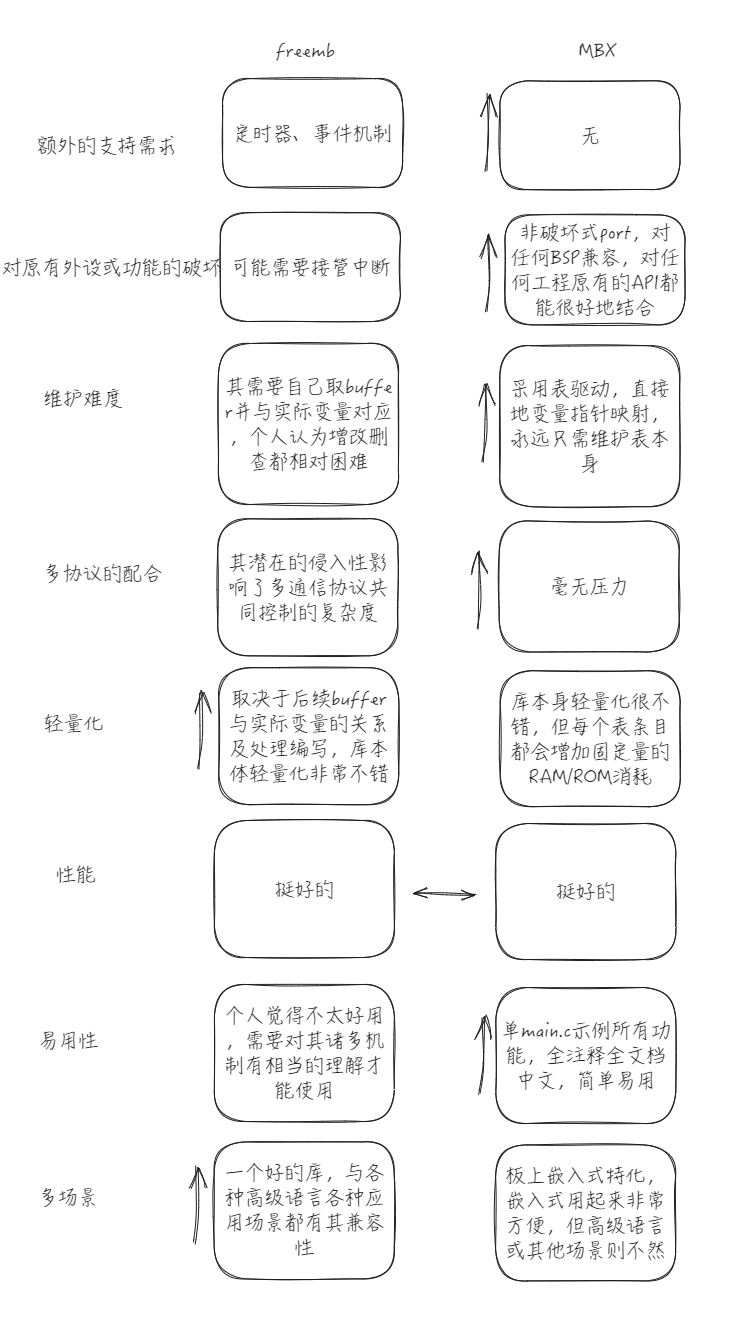不过我根本没管所谓的寄存器映射之类的活,太繁杂了,不好使。我的从机是用类似网络服务器那种风格实现的,请求来了以后就分别调用读取或写入回调,类似网络服务器那种on_get,on_post。对不同寄存器地址的请求本身没有相互关系。比如要写入寄存器0x01,不管写入的长度有多少字节,也不会牵涉到寄存器0x02,除非用户自己实现了相应的逻辑。
简单的从机例子:
[C] 纯文本查看 复制代码
#pragma once
#include <Arduino.h>
// #include <scheduler_tick.hpp>
#include "basic_property_server.hpp"
#include "rtu/non_block_serial.hpp"
namespace modpash {
template <typename ModpashTransceiverType>
class DemoServer : public BasicPropertyServer<ModpashTransceiverType> {
static_assert(sizeof(float) == 4, "Float size must be 4 bytes");
private:
union {
struct {
uint16_t value_0;
uint16_t value_1;
uint32_t value_2;
float value_3;
} v{0};
uint16_t d[6]; // 两个uint16 加一个uint32_t、float == 6 个 uint16
} _value;
public:
DemoServer(ModpashTransceiverType &rtx) noexcept :
BasicPropertyServer<ModpashTransceiverType>(rtx, 3) {
// 给三个属性分配个初始值
_value.v.value_0 = 0xaabb;
_value.v.value_1 = 0xccdd;
_value.v.value_2 = 0xaabbccdd;
_value.v.value_3 = 3.14f;
}
virtual int_fast8_t on_read(uint16_t address, uint8_t count) override {
// DEBUG
// Serial.printf("Addr= %d, ", address);
// Serial.printf("Count= %d\n", count);
if (count > (sizeof(_value.d) / 2)) {
return RESPONSE_ERROR_INVALID_VALUE;
}
// 异常响应必须在begin_response 之前全部处理掉,
// 否则会导致帧结构错误
this->begin_response();
switch (address) {
case 0:
for (uint_fast8_t i = 0; i < count; ++i) {
this->send_property(_value.d[i]);
}
break;
case 1:
this->send_property(_value.v.value_1);
break;
case 2:
this->send_property(_value.v.value_2, count == 1);
break;
case 3:
this->send_property(_value.v.value_3, count == 1);
break;
}
this->end_response();
return RESPONSE_TYPE_OK;
}
virtual int_fast8_t on_write(uint16_t address, uint8_t count) override {
// 处理写入请求时,响应帧是根据返回值生成的,所以异常响应可以随便在中间哪里处理
switch (address) {
case 0:
if (count > (sizeof(_value.d) / 2)) {
return RESPONSE_ERROR_INVALID_VALUE;
}
for (uint_fast8_t i = 0; i < count; ++i) {
_value.d[i] = this->template read_property<uint16_t>();
}
break;
case 1:
if (count != 1) {
return RESPONSE_ERROR_INVALID_VALUE;
}
_value.v.value_1 = this->template read_property<uint16_t>();
break;
case 2:
if (count != 2) {
return RESPONSE_ERROR_INVALID_VALUE;
}
_value.v.value_2 = this->template read_property<uint32_t>();
break;
case 3:
if (count != 2) {
return RESPONSE_ERROR_INVALID_VALUE;
}
_value.v.value_3 = this->template read_property<float>();
break;
}
return RESPONSE_TYPE_OK;
}
};
} // namespace modpash
| 




 发表于 2025-6-24 16:39:38
发表于 2025-6-24 16:39:38


 楼主
楼主


